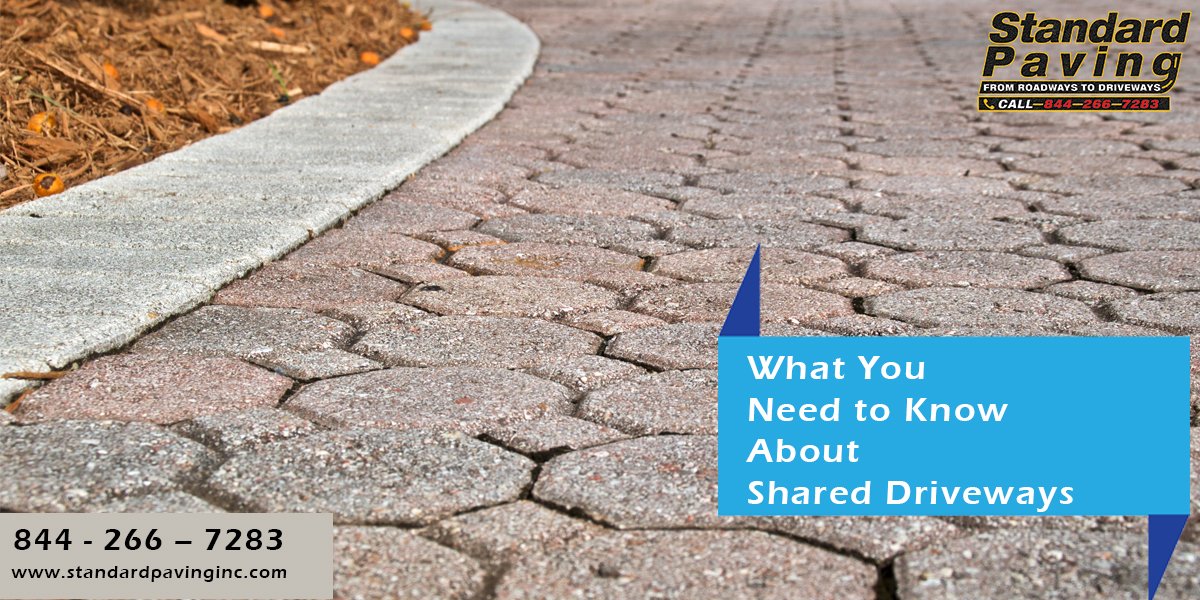If your browsing listings for a new home and you find one that’s just about perfect, but the description says it has a shared driveway. If you’re like most people, you won’t know what a shared driveway is or how it works. Shared driveways, also called common driveways or pipestem driveways, come with a set of issues that you wouldn’t have with a home equipped with a standard drive.
A shared driveway is essentially a private driveway off of a public street that two or more home driveways branch off of. They are a way for land developers to squeeze out the most home sites possible from their land holdings. They are popular in “built out” areas where available land for new construction is available, and in rural areas that have deep tracts of land.
Buying a single-family home is usually an expression of independence. No more condos or town homes with shared walls. The homeowner is buying privacy and total control of his or her property. Buying a house where you have to share an essential feature like a driveway, can be a bit off-putting.
But if you know what to look for, buying a home on a shared driveway can be just as rewarding as a home with a standard drive.
Most Common Questions About Shared Driveways
Q: How Does It Work?
Builders will sometimes site housing plots perpendicular to the public street to optimize the number of lots available and to avoid the cost of creating “new” public street to accommodate the additional homes. To give the homeowners of those perpendicular lots access to the public street, a single lane driveway is built between the homes. The private driveways of the homes then connect to the “shared driveway.” The shared driveway is private meaning the homeowners are responsible for it. Typically, but not always, an easement is recorded on the deed spelling out ownership and other details.
Q: Who is Responsible for Maintenance of the Driveway?
The short answer is the homeowners are responsible for maintenance, repairs and services like snow removal. How those responsibilities are carried out can vary widely. In some instances there are written agreements, in others it’s just an informal understanding. Sometimes escrow accounts are established to cover costs much like a small HOA, in other instances it’s far more casual. Joe owns a snowblower and we buy him gas and a six pack. Obviously, a buyer needs to know how the responsibilities are handled before buying a home on a shared driveway.
Q: How Easy is it to Sell a Home on a Shared Driveway?
Most realtors will tell you that in a seller’s market it won’t matter. However, in a buyer’s market, it may be a significant issue in the buying decision.
Q: Are there any Advantages to a Shared Driveway?
Sure, and they mostly revolve around quality of life issues. Here’s a quick list:
- Because the drive is private, you don’t have the traffic you would have on a public street. This makes for a much safer place for kids to play than a house sitting on a public street. The only vehicles on the road belong to the neighbors, guests, and delivery services.
- By necessity, you’ll have to engage with your neighbors more than a home on a public street. In the best-case scenario, you can build a true sense of community. Street parties become common events.
- If a disaster strikes like flooding or heavy rain that damages the drive, you have others that can assist in getting the drive repaired and back in service.
Q: What are the Everyday Cons?
Private roads come with some inconveniences particularly if you live furthest from the public street:
- The city snow plow will not come up your drive and neither will the trash truck, or the USPS. You’ll have to make arrangements for snow removal, take your trash containers down to the curb at the public road, and your mailbox will most likely be at the curb as well.
- The other potential problem are parking restrictions. Most driveways are too narrow to allow parking on the side of the road. If you have more guests than can park in your private driveway, do they have to park on the public street and walk up the shared driveway?
The most important thing you can do when considering a home on a shared driveway, is to check with a trusted realtor to get comps on similar homes also connected to a common drive. In some areas where these arrangements are common, there may be little difference between a shared driveway home and a home on a public street. However, the reverse is true as well. Spend the time to investigate precisely how the shared driveway that your dream home is connected works so you can make an informed buying decision.


